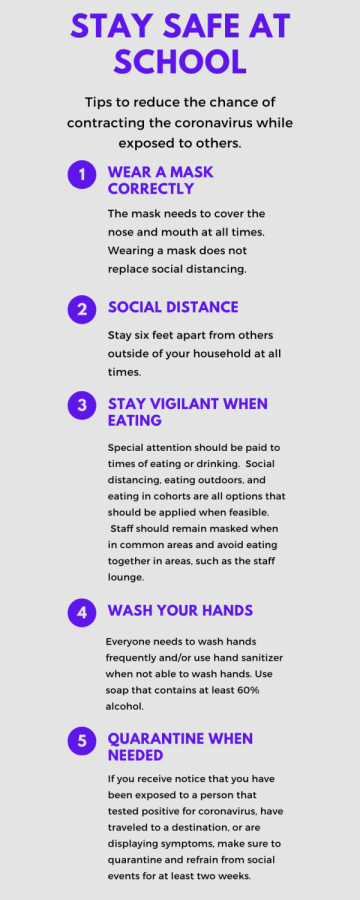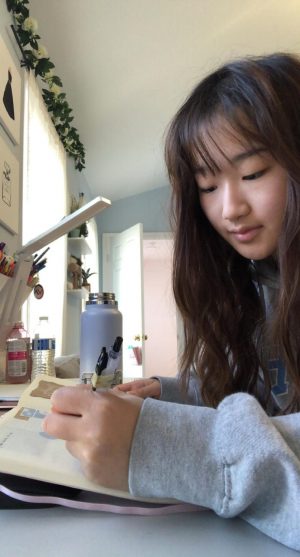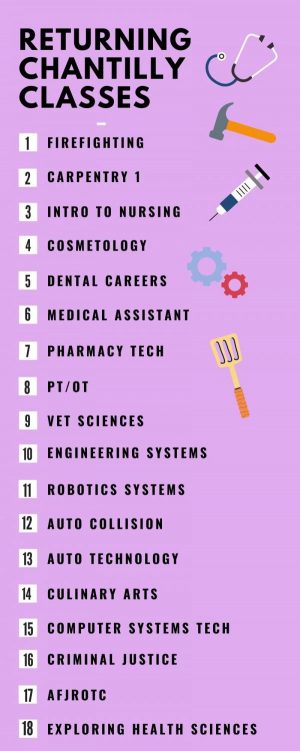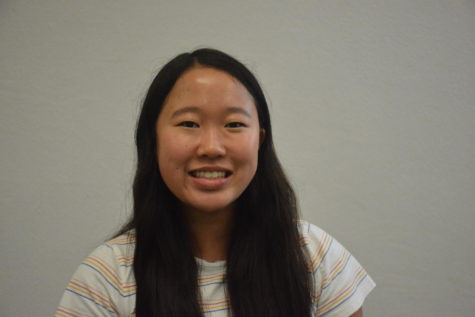Returning to school: local healthcare workers weigh in
Tips to reduce the risk of contracting Covid-19 at school. See the CDC website for more information.
March 5, 2021
The Fairfax County Public School (FCPS) board has decided that students will return to in-person learning on March 2. Students have the option of staying virtual or learning two days a week in person and two days virtually. However, all teachers, except those with high-risk conditions, are required to return to school in-person for four days a week while concurrently catering to all students. Amidst rising concerns regarding safety, healthcare workers share their opinion on in-person instruction.
“I feel teachers should absolutely be able to teach with a mix of in-class and at-home teaching,” radiologist doctor Bruce Urban said. “My daughter goes to a school where they’ve been doing this all semester, and it’s been going great.”
FCPS staff are in the process of receiving vaccines that are made available through INOVA, a major healthcare system for Northern Virginia. All FCPS employees are considered part of phase 1B, which comprises the first eligible vaccine recipients after frontline healthcare workers.
“Once teachers and staff are vaccinated, I believe it will be safer to go back to school [depending] on the pattern of spread in the community,” FCPS parent and emergency room doctor Kristy Reynolds said. “We know our younger population experiences less severe illness when they have the virus; however, they can certainly still pass it amongst each other and to their families.”
As of March 2, three vaccines created by Pfizer-BioNtech, Moderna, and Janssen BioTech, a subsidiary of Johnson and Johnson, have been approved by the Food and Drug Administration for emer. The Pfizer-BioNtech vaccine is approved for teens ages 16 and older, whereas the Moderna and Johnson and Johnson vaccines are only approved for adults. Children have not heavily participated in vaccination trials, meaning that students under 16 may not receive vaccines in the near future.
“If high school students are eligible for it, they should definitely get [a vaccine],” eye doctor and Pfizer vaccine recipient Phillip Chung said. “Not only will this protect the students from the disease, but it may also prevent them from spreading it in the community.”
Further pushing the need for vaccines for youth, concerns have been raised regarding the quality of virtual education. According to a Washington Post article published on Nov. 24, the number of middle and high school students in FCPS who have been failing at least two classes increased by 83% compared to last year, equating to almost 10,000 students. Furthermore, students of low-income backgrounds have been left behind and others now juggle household responsibilities, such as caring for younger siblings, along with school.
Students and faculty who are in the building must follow some established safety precautions to stay safe. According to the CDC, wearing a mask and social distancing can slow the spread of the virus, but not entirely prevent it. In classrooms, individual desks will be at least six feet apart and students are required to wear a face covering.
“We continue to stress the importance of wearing a mask – and wearing it correctly, [and washing] hands frequently,” Reynolds said. “[Even though] everyone looks forward to being back together at school, we shouldn’t drop our guards. We [have to] keep each other safe.”





